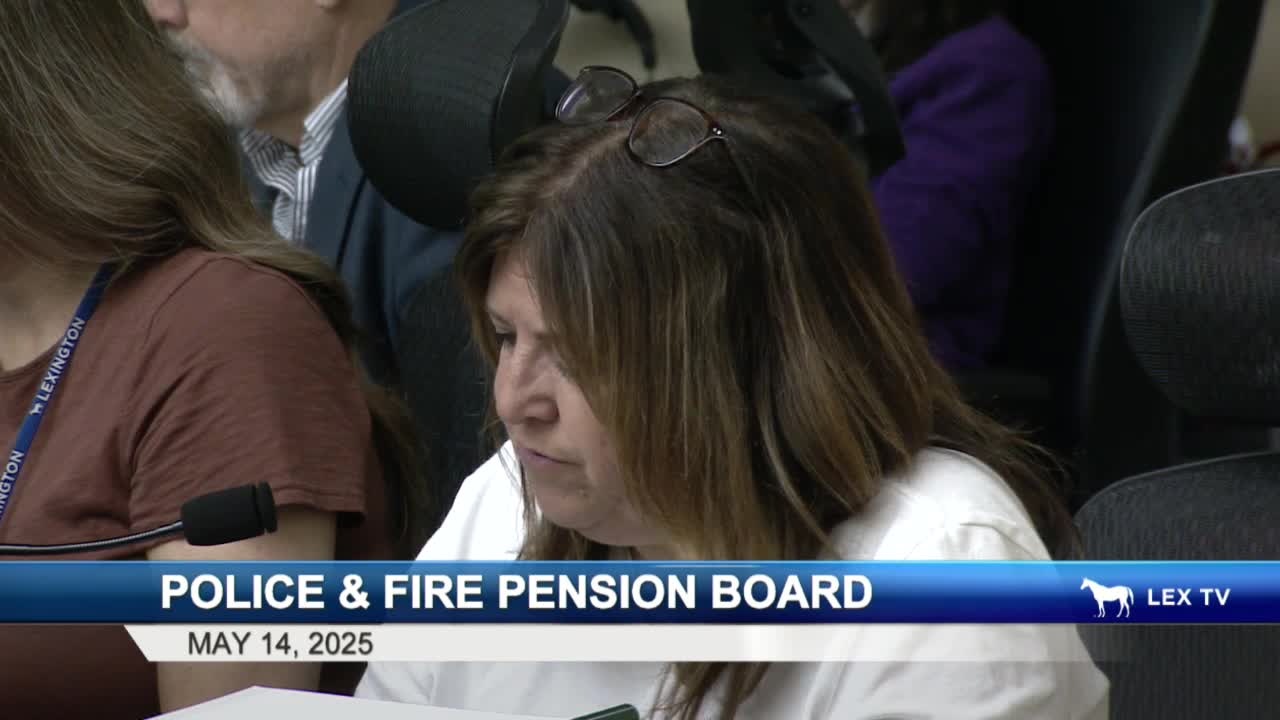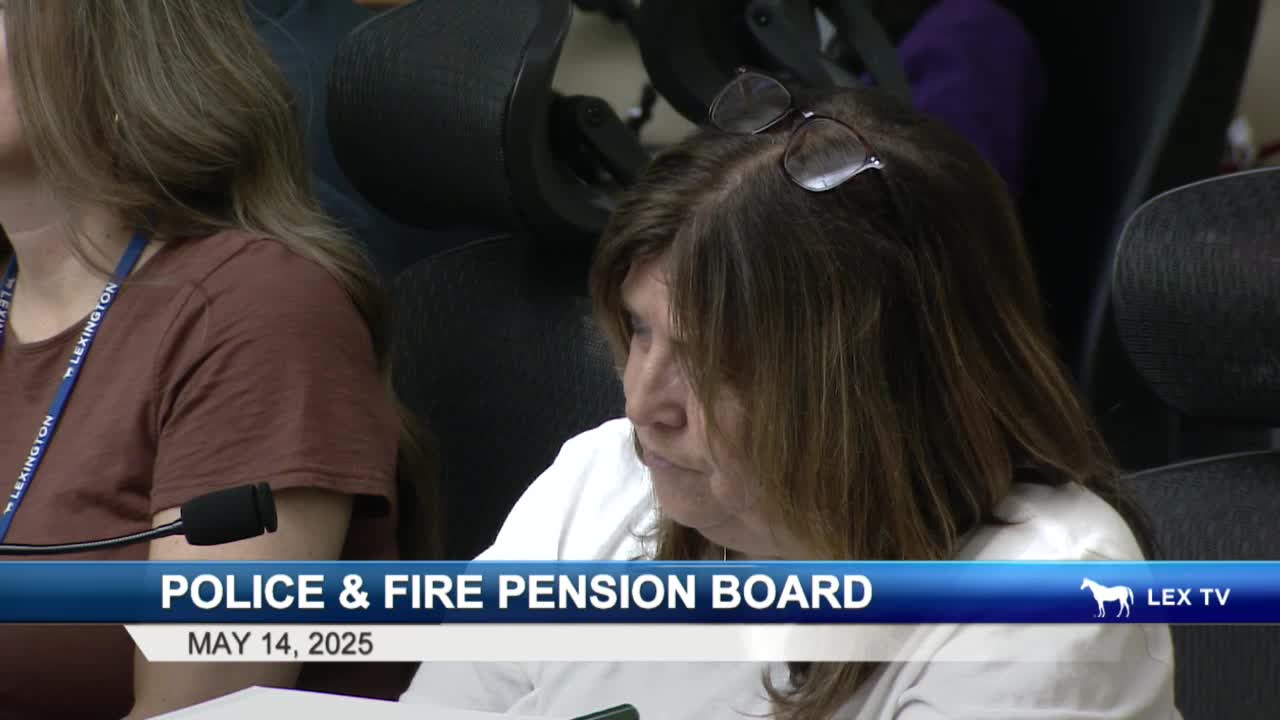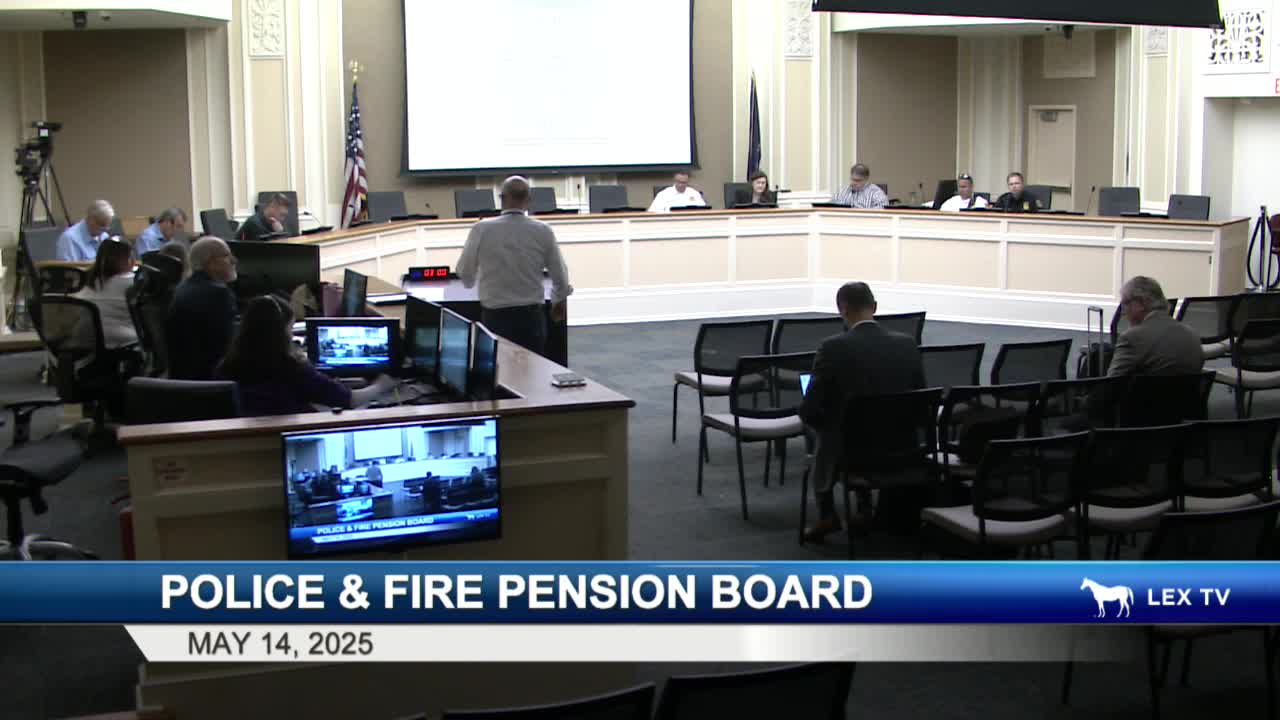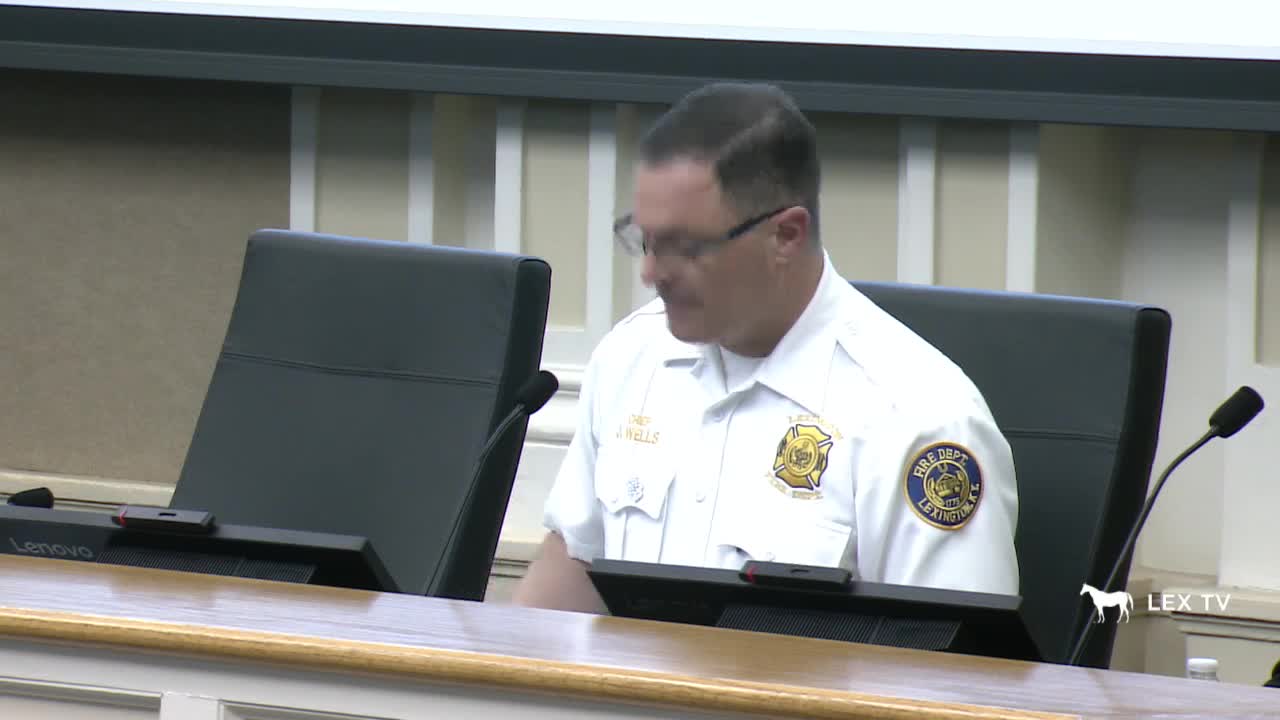Article not found
This article is no longer available. But don't worry—we've gathered other articles that discuss the same topic.

Board offers tributes to two police officers and one firefighter who died in April

Board schedules rehearing for firefighter Buxton after debate over heart-and-lung presumption and disability rating

Board approves Treasurer's report, annuities, retirements and disbursements; schedules medical reviews

